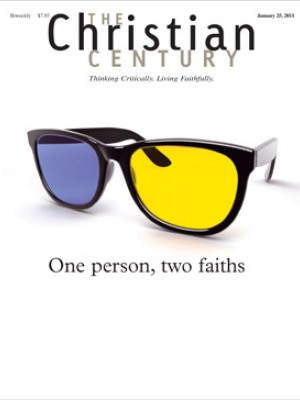Dutch synod looks to mend historic Protestant splits
A gathering to improve relations between the many Protestant
denominations in the Netherlands recently took place on the site of an
earlier historic synod, though any idea of complete church unity taking
place was said to smack of "an unrealistic utopia."
About 700
Christians from 50 Protestant churches attended what was billed as a
"national synod" December 10–11 in the main church in the town of
Dordrecht.
The gathering's name echoed that of the Synod of
Dordt, a six-month-long assembly held in the same building from November
1618 to May 1619. That synod was called to settle a dispute between
Calvinists and Arminians.
Calvinists believe that God preordains
only some people for salvation; Arminians say that all can be saved.
Calvinism won the day at the 17th-century Dordt synod and has held sway
in the Netherlands ever since. Still, the country's history has been
marked by disputes that have resulted in distinct, rival Reformed
denominations. Today, Protestant Christians, mainly Calvinist, make
up about one-third of the Netherlands' 16.3 million population.
Read our latest issue or browse back issues.
"Our
society can rely on us to be people who seek to go on their way in
faith, hope and love," the latest synod said in a statement presented
during the meeting to the government's home affairs minister, Piet Hein
Donner.
Despite its title, the national synod had no authority to
make binding decisions. Instead, its members discussed what religious
beliefs they have in common. An often-heard phrase was: "There is more
that binds us than divides us."
The country's ecumenical
broadcaster, IKON, reported that the establishment of a single
Protestant church was not one of the assembly's aims. One participant
was quoted saying that to hope for such an outcome would be to envision
"an unrealistic utopia."
Barend Kamphuis, one of the organizers,
said that a national synod would not be an annual event, though there
will "certainly" be two more such synods before 2018. On that 400th
anniversary year of the Synod of Dordt, many have hoped that not only
will a synod be held, but that it will also make binding decisions.
Gerrit
de Fijter, a former president of the Protestant Church in the
Netherlands who is credited with the idea of a modern-day national
synod, said that the next step will be to involve denominations that
refused to attend the December meeting. Absentees included both liberal
and conservative denominations. Notable among the former was the
Remonstrant Brotherhood.
The 17th-century synod condemned the
Remonstrants as heretics and banished them from the Reformed churches.
The Protestant Church in the Netherlands was founded in 2004 as a
result of the merger of the nation's two largest Reformed denominations
and the smaller Lutheran church. —ENI






